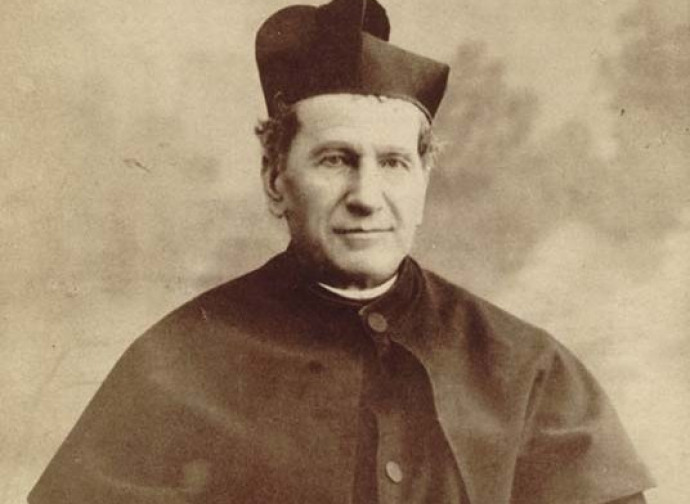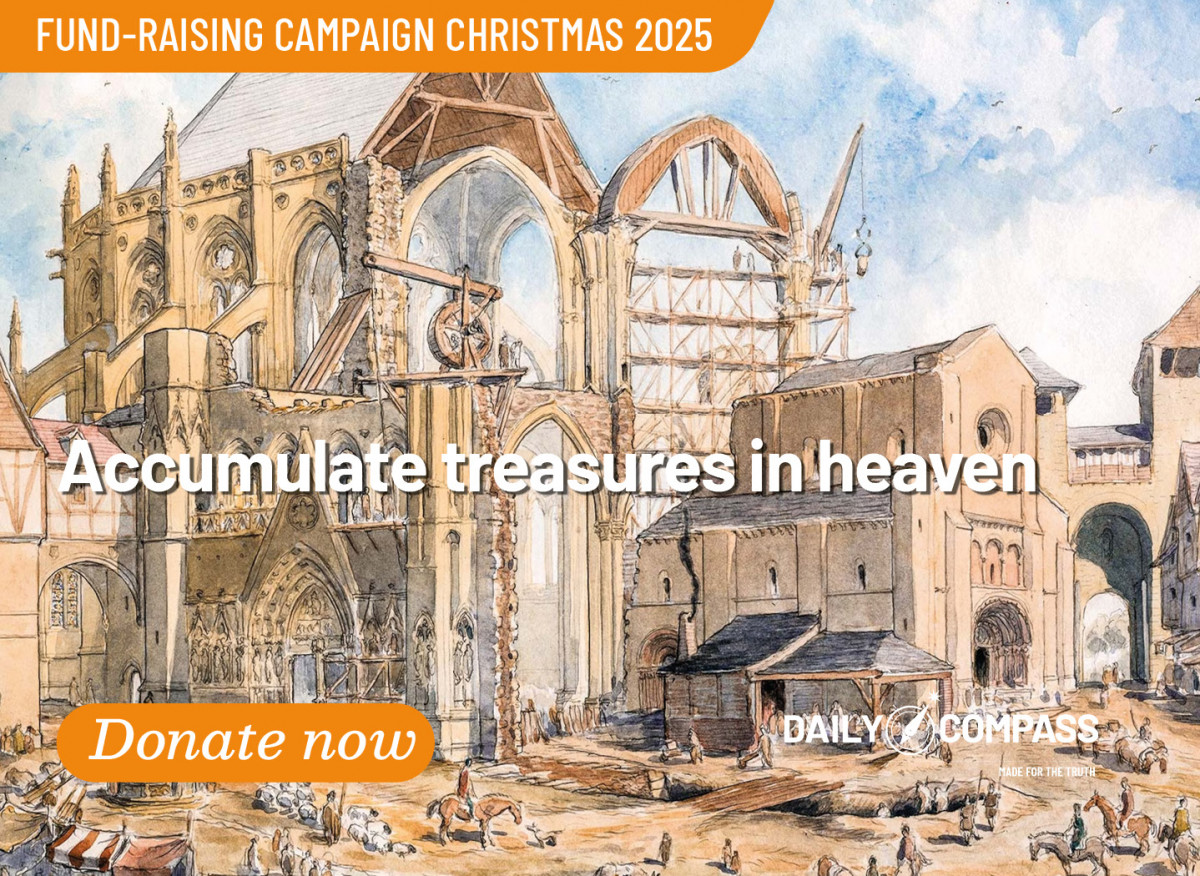Saint John Bosco
Saint John Bosco (1815-1888) was a pedagogue, a writer, a publisher, a saint endowed with countless mystical gifts; he was a father to a myriad of disadvantaged children and young people whom he educated to work and to a Christian life in a Turin in the feverish climate of industrialisation.

Saint John Bosco (1815-1888) was a pedagogue, a writer, a publisher, a saint endowed with countless mystical gifts; he was a father to a myriad of disadvantaged children and young people whom he educated to work and to a Christian life in a Turin in the feverish climate of industrialisation. In the troublesome years between the so-called "Risorgimento" and the unification of Italy, where liberal-Masonic and anti-Catholic forces largely ran the show, he always kept his eyes fixed on eternity. As Pius XI wrote in the Decretal Letter for his canonisation, the supernatural works and graces that characterised this Saint's whole life “made universal the opinion that, by a most provident divine arrangement, in order to promote the Christian restoration of human society, strayed from the path of truth, God had sent John Bosco.”
John Bosco had a troubled childhood. Born at Castelnuovo d’Asti (now re-named Castelnuovo Don Bosco) to a peasant family, he lost his father when he was not yet 2 years old; consequently, his mother Margaret (later Venerable Margaret Occhiena Bosco) had to work particularly hard. Maternal upbringing was fundamental to John, who at just 9 years old had his first celestial revelation in the form of a prophetic dream. As he would write in his Memoirs, he saw "a great many boys. Some laughed, others played, a number of them blasphemed". Then he saw a majestic man, his face so bright that he could not look at him: he introduced himself as "the Son of Her whom your mother taught you to greet three times a day", asking him to befriend those boys, with charity and knowledge: "Explain to them that sin is a bad thing and that friendship with the Lord is a precious good." Next to him appeared a majestic woman, and then some ferocious animals turning into gentle, playful lambs. "This is the field of your work", said the woman, adding: "You will have to do it for my children."
As a child, John demonstrated his talents and a desire to study which, however, seemed incompatible with family hardships. He worked as an apprentice, waiter, blacksmith, carpenter, learning the rudiments of trades which he would later pass on to the boys in the crafts workshops set up in the oratory. In Chieri, Turin, he met Luigi Comollo (1817-1839), who was bullied by his schoolmates, whom he actually treated with forgiveness, while John tried to defend him by fighting them. A strong friendship started between the two boys, which John would remember thus: "I can say that I first learned to live as a Christian from him". Meanwhile, he had founded the "Society of Joy", trying to bring the other boys closer to prayer, and attracting them with games and acrobatics, at which he was very skilled.
Then came the meeting with Fr Joseph Cafasso (1811-1860), the Saint he referred to at some turning points in his life, such as when he resolved to enter the seminary to study the Scriptures as well as dogmatics and ethics. In 1841 John was ordained a priest and on December 8th of the same year, before celebrating Mass, he met the 16-year-old bricklayer Bartolomeo Garelli, a poor, illiterate orphan. Other troubled boys came to him shortly afterwards: thus began the Oratory of Saint Francis de Sales, dedicated to the great French Saint, whose writings had been invaluable to John's spiritual growth.
Don Bosco's work spread rapidly. In 1854 he established the Salesian Society to further his charity work based on the idea of forming "honest citizens and good Christians" with his cherished ultimate purpose of saving souls. As the adolescent Saint Dominic Savio said: "We here at Don Bosco's school make holiness consist in being very cheerful and in the perfect fulfilment of our duties". The preventive system underlying Don Bosco's pedagogy was based on three pillars: reason, religion, loving kindness. In 1872, with the help of Saint Mary Domenica Mazzarello, Don Bosco founded the Daughters of Mary Help of Christians, to extend to girls the same education offered to boys, to whom he used to say: "Be cheerful, but do not sin".
For these reasons he devoted his whole life to defending the Church, increasingly attacked by those in power. In a famous dream he saw a terrible sea battle, where a large boat led by the pope was attacked by a multitude of boats, until the pope found safe anchorage between two columns: the first carried the Eucharist with the inscription "The Salvation of Believers", the other bore Mary Immaculate,"Help of Christians". Don Bosco warned King Victor Emmanuel II not to sign the law for the suppression of religious orders and the confiscation of their property ("the family of those who steal from God is troubled and will not reach the fourth generation", he prophesied), had clashes with the Protestants, and was opposed by the secularist press. Because he understood the importance of the press in favouring or destroying a Christ-oriented society, he curated numerous publications (on the metric system, on the history of Italy, on Catholic readings, among others) and wrote the lives of saints, pontiffs, and various other works on the history and truths taught by the Church.
Don Bosco was also a healer: countless are the miracles he performed on earth. Thus Satan tried to hinder him in all possible ways, even disturbing his sleep at night. But he endured it all, in order to preserve the souls of those children whom Jesus and Mary had already entrusted to him in his childhood dream. "It is necessary to tell the devil to stop deceiving many young people, to stop attracting many to Hell; then I will also cease to sacrifice myself for them". In his final days on earth, he asked one of his collaborators to tell the boys: "Say that I await them all in Heaven".
Patron of: educators, young people, students, publishers
Further Readings:
Geminata Laetitia, Decretal Letter for the canonization of Fr John Bosco (April 1st, 1934)
Memoirs, by Saint John Bosco (his Opera Omnia)

